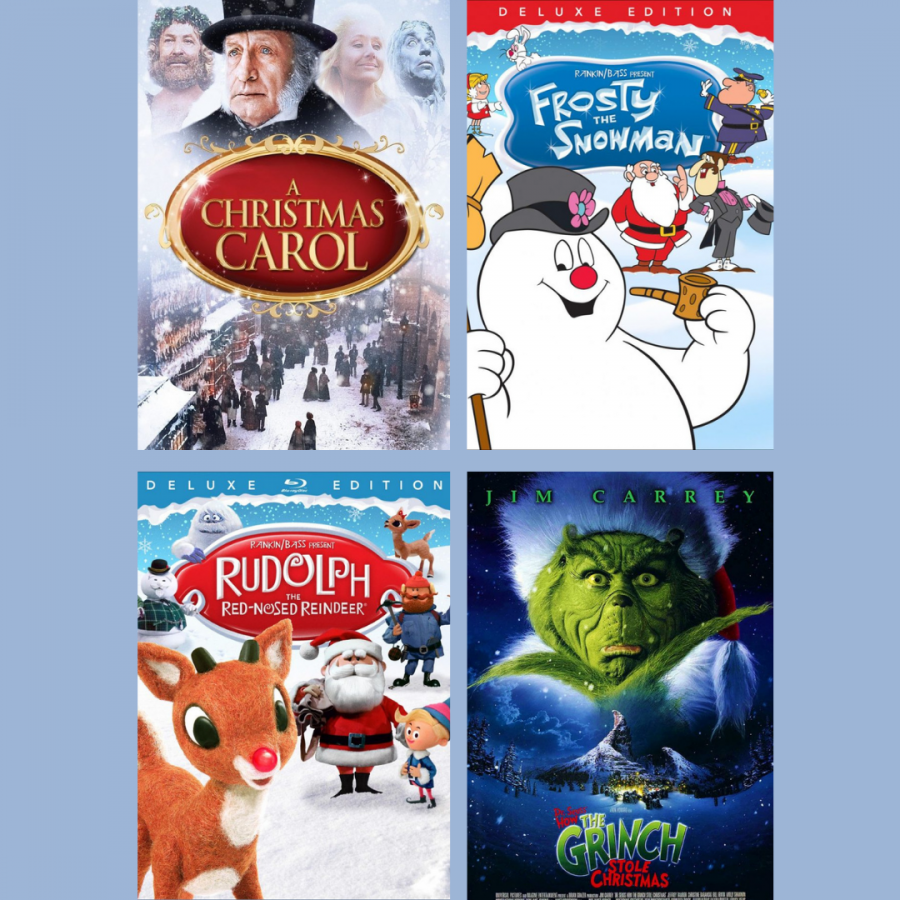Dissenting reviews on Christmas classics
December 24, 2021
Christmas movies bring immense nostalgia from our earliest years. Regardless of religion, most people are familiar with “Rudolph the Red-Nosed Reindeer,” “Frosty the Snowman,” “A Christmas Carol” and “How the Grinch Stole Christmas” and have distinct memories tied to them. We’ve decided to look at these childhood classics again to see how our fond memories hold up. We quickly found that some of the warm memories hold strong and the films are like childhood dreams, while other memories have turned from their marshmallow-world origins.
Rudolph the Red-Nosed Reindeer (1964)
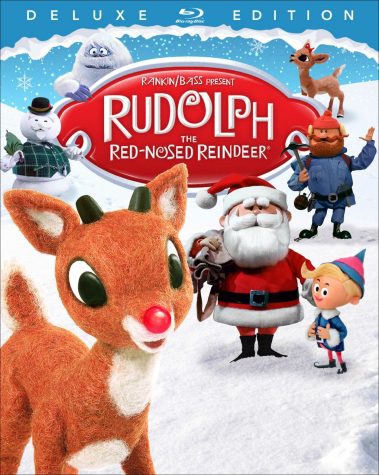
Rudolph is the only reindeer with a red nose, and his uniqueness isolates him socially from his family and friends. His parents give their best attempts to conceal his nose after Santa voices his discontent for it. After a later instance of bullying, Rudolph sets off on his own and meets Hermy, an elf with a similar story to Rudolph. Together, they journey to find themselves and learn to be comfortable in their own skin.
Amelia’s Take: A Joyous Tale
Acceptance and diversity are preached through the film’s diverse set of characters.The differences each character has from the rest of their peers, such as Rudolph’s nose, is something we can all relate to. The relationship doesn’t get overly sappy though (thank goodness). The endearing characters and their personalities help every viewer embrace their differences.
The endearing claymation style gives the 1964 movie a vintage feel which creates a more comforting scene for viewers. It had all the nostalgic feels that make me want to make a fort, some hot cocoa and snuggle up to the utter happiness. Because this movie brought me pure joy, I give it 5/5 snowflakes.
Maggie’s Take: Good Morals, Bad Misogyny
At first glance, “Rudolph the Red-Nosed Reindeer” seems like it could be a timeless childhood classic. However, as I reflect on it again as a more mature version of myself, the ending isn’t as happy as I once thought.
The animation and music quality in this 1964 movie are sub-par, but they hold up compared to other works from the time.
What does not hold up to time, however, is the misogynistic tendencies the movie displays. Once Rudolph has run away, his parents are rightly concerned for their son’s safety after he doesn’t come home. Donner goes to look for him, but when Mrs. Donner asks if she can come with him, Donner replies, “No. This is man’s work!” Are women not strong enough to go look for their lost son? That’s not the only line that sticks out. After losing a character, the narrator reads, “They were all very sad at the loss of their friend, but they realized that the best thing to do was to get the women back to Christmas Town.” Yes, only the women went back to Christmas Town. The lesson that women are inferior is not something that young and easily influential kids should be exposed to.
Unfortunately, this isn’t the only bad message this film imparts. One of the main plot aspects, as you may recall being heavily featured in the song, “Rudolph the Red-Nosed Reindeer” by Johnny Marks, is how until Rudolph lead Santa’s sleigh on a foggy night, he was not allowed to join the other reindeer in their reindeer games. Rudolph was completely outcasted due to his red nose until it became an asset to the team. Only then was he treated as any other reindeer, imparting the lesson to children that you are only acceptable to society if you are useful.Even though it displays questionable morals, I can’t deny how adorable the characters are, which saves the movie’s bacon for a solid 2.5/5 snowflakes.
Frosty the Snowman (1969)
After a dreary holiday performance by a pathetically terrible magician, Professor Hinkle, young students race outside to the fluffy snow awaiting them. They promptly build a snowman, Frosty, who comes to life when Hinkle’s hat is placed upon his head. When temperatures quickly rise, one of the students named Karen races Frosty to the North Pole along with the help of new friends they meet along the way; however, they are swiftly pursued by Hinkle, who wants his newly-found magical hat back.
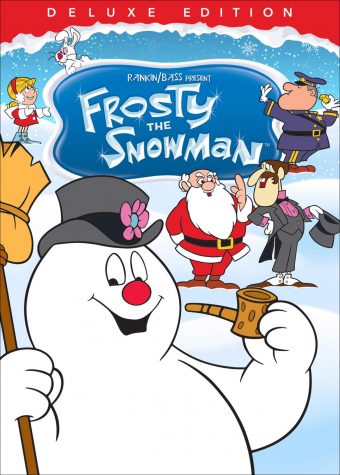
Amelia’s Take: Endearing Tale of Holiday Magic
My inner-child whoops at the adorably endearing and magical qualities throughout “Frosty the Snowman.”
The 1969 classic highlights the magic of the season and emphasizes that while it’s sad when the Christmas season ends, the true magic of the season is always present through the good of others. Wonderfully innocent and random woodland creatures band together to assist Karen and Frosty on their journey spreading the unity and kindness of the Christmas spirit.
The interactions between characters are so pure it’s magical. This may sound a tad overly optimistic, but if you compare the sheer joy exchanged with some of the realities of life, it might as well be Neverland.
The film has perfectly blended humor with its message of the importance of the holiday spirit. My only criticism is the quick-natured action of the plot, but even this doesn’t take away from the overall story.
“Frosty the Snowman” is an endearing tale that evokes the love of holiday magic. I give it 4.5/5 snowflakes.
Maggie’s Take: Boring, Melt Already!
I have watched “Frosty the Snowman” multiple times in my 14 years of life, and each time is more miserable than the previous one.
While the movie has a seemingly short 25-minute run time, I personally think a runtime of two minutes and 53 seconds (the length of the song “Frosty the Snowman” by Gene Autry & The Cass County Boys) would have been much better.
The plot is incredibly simple. Magician has a magic hat that is put on snowman, snowman is now alive, snowman plays with kids, snowman melts but can come back to life. That’s all there is to it.
Since the plot is so simple, having it cover 25 minutes is a drag. Boredom was the only emotion I felt the entire time. And alright, I understand that I probably am above the age of the target audience, but I am sure my attention span has grown significantly since then.
The movie is supposed to have a really happy ending, and while it isn’t sad, it’s so predictable and unsatisfactory that it would have been much more interesting if Frosty was unable to come back to life. For the poor entertainment value, Frosty gets 1/5 melted snowflakes.
A Christmas Carol (1984)
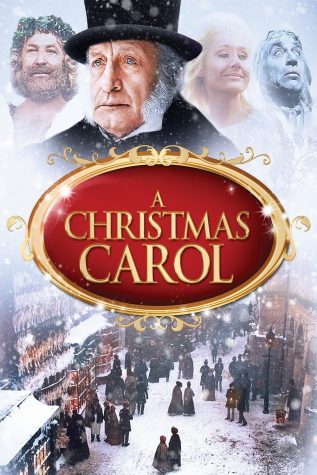
The story starts with miserable businessman, Scrooge, whose livelihood feeds off the misfortune of others. Scrooge is visited by four well-intentioned ghosts who try to show him how his actions impact those around him, including his employee Bob Cratchet and his sickly son, Tiny Tim. The ghosts transport him throughout time trying to convince him to change his ways by displaying many of his past mistakes.
Amelia’s Take: Destroyer of Holiday Spirit
“A Christmas Carol” snuffs out any ember of cheer previously held by viewers.
While elements of the plot had great potential, such as Tiny Tim’s relationship with his father, they were all out-shadowed by the depressing character development.
Scrooge went from a wealthy, self-centered businessman to a relatively kind man; however, his development was drastically overshadowed by the gloomy environment to which the film was hyper fixated on. They zoomed in on all the mistakes Scrooge made in his life, which while wrong, were amplified in a way that repeated the same negative connotations. The plot moved in slow motion and lacked all ability to focus on important details, yet somehow seemed to repeat itself excessively.
The entire 101-minute duration of the movie felt as if I were watching a plane crash right in front of me: breathtakingly sad but I can’t seem to shift my gaze. Every moment of the plot just repeatedly zeroed in on the tragedies that life has in store yet somehow tries to spin it into a “heartwarming” tale.
Every ounce of this movie felt designed to deplete the holiday spirit. Unless you enjoy watching others’ trauma being framed into a “wholesome” story, this is not a film I’d recommend. Therefore the only rating I can feel good about is 1.5/5 snowflakes, with the only somewhat redeeming factors being the detailed costumes and expressive language.
Maggie’s Take: Egotistical Perfection
After reading my previous reviews, you may think of me as the supreme Ebenezer Scrooge, but ultimately “A Christmas Carol” is one of my all-time favorite movies.
The dark cast of the scenery and the true to the time period set somehow make for an incredibly heartwarming classic. So many holiday movies are excessively cheery, merry and bright, but “A Christmas Carol” has a perfect balance of creepy and a satisfying ending. The “makin’ money” mentality of Scrooge shifts as the movie progresses, immersing the audience into the wonders of the holiday season, companionship and most importantly, family. Tiny Tim and his angelic presence may be one of the cutest characters movies have to offer, and he presents a needed stark contrast to Scrooge’s harsh personality.
Ultimately, “A Christmas Carol” avoids overdoing the cheery holiday atmosphere, as many movies do, to create the perfect, satisfying movie for all watchers. 5/5 snowflakes for such an endearing classic.
How the Grinch Stole Christmas (2000)
The Grinch is a mean spirited hermit who retreated to the mountains from Whoville long ago after being relentlessly picked on for his differences. The Grinch has been an outcast living in his cave lair since he was a child, drowning out his hatred for Christmas cheer in sadness, while the Whos happily enjoy Christmas without his presents (get it?). However, years later, young Cindy Lou Who begins to question the meaning of Christmas because the Whos only show the Christmas spirit to some people and not the Grinch. She pursues a friendship with the grumpy fellow and is met with lots of pushback.
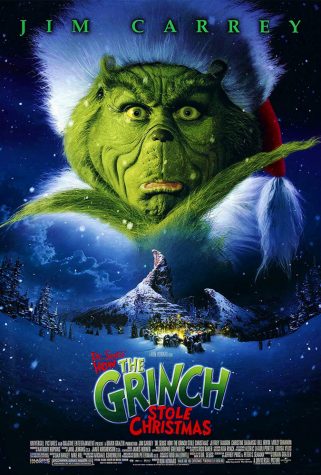
Amelia’s Take: A Troubling Tale of a Sociopath
“How the Grinch Stole Christmas” incites fear among all poor souls subjected to this movie.
In this live-action depiction, the Grinch’s horrifying appearance and despicable persona create a sociopathic character. His costume is eerily life-like and in scenes where he screams at children and behaves harshly towards his sweet dog, Max, it seemed as if it were a grown man doing these things. In parts where it was strictly him and Cindy Lou, I questioned who allowed a little child to be alone with such a troubled man, regardless of the fact that he never harmed her.
The lack of acknowledgment by the Whos of how crudely the Grinch was treated was shocking. The people in Whoville carried themselves all with a certain degree of entitlement that was never fully addressed. How poorly the Grinch was treated shouldn’t be an excuse for how he behaved. However what little the Who’s took ownership for was used as justification for how he acted towards others.
“How the Grinch Stole Christmas” is not only unenjoyable but downright troubling and normalizes unacceptable concepts, which leaves me to rate it 1/5 snowflakes.
Maggie’s Take: Hilarious and Heartwarming
There have been many versions of “The Grinch” released, but the one that stands out to me the most is the 2000’s version starring Jim Carrey. The live-action characters and the (admittedly) creepy at first life-like sight of the Grinch are perfect.
The movie begins with the bustling scenes of Whoville and the capitalistic Whos rushing around to complete their Christmas shopping. The bustling scene, especially due to the fact it is live action, is comically overdone and hectic in the best way possible.
The scenes detailing the Grinch’s home life were my personal favorites. The presumable ad-libbing done by the Grinch makes the audience think, “Wow, that’s so Jim Carrey.” The Grinch also takes a comical take on the issues plaguing the Whos’ society as well as our own, and while staring directly at the camera says, “Kids today. So desensitized by movies and television,” which helps add to the comical nature of the movie, especially for older viewers.
By the end, after a whirlwind of happenings and plot turns, both the Whos and the Grinch learn lessons that Christmas is about companionship and more than any object, and that having a cold, small, heart does no one any good.
This timeless classic gets a well-deserved 5/5 snowflakes.



